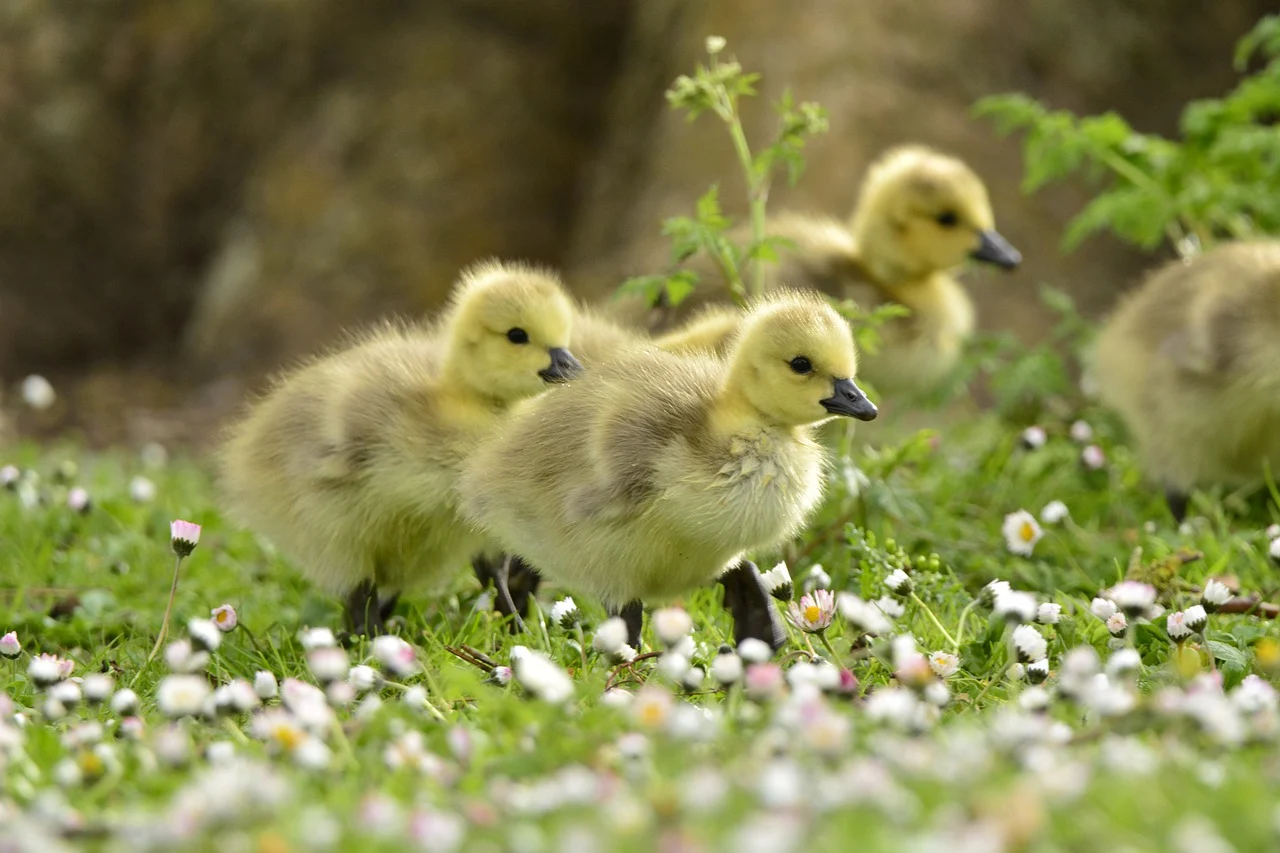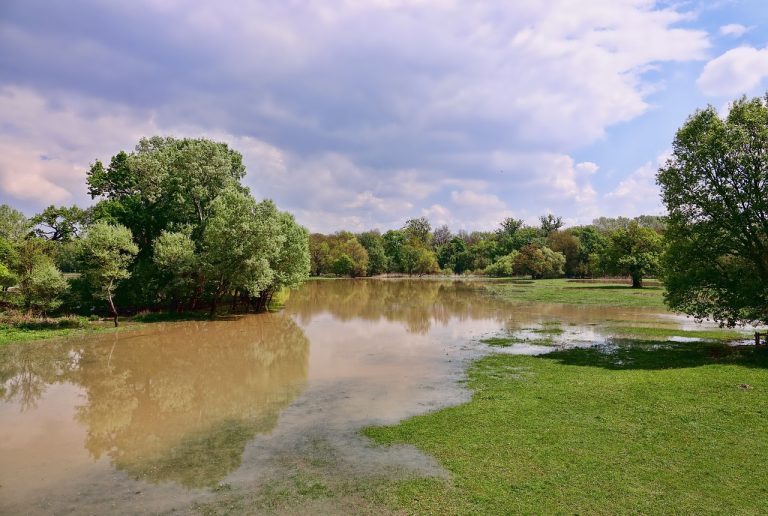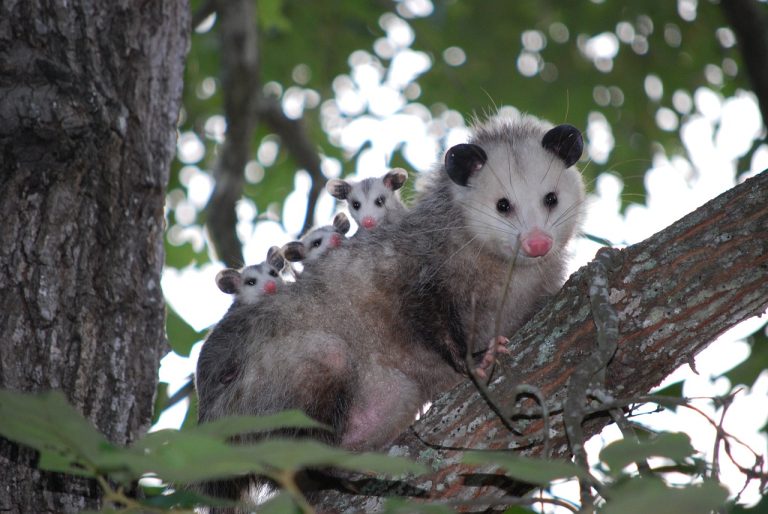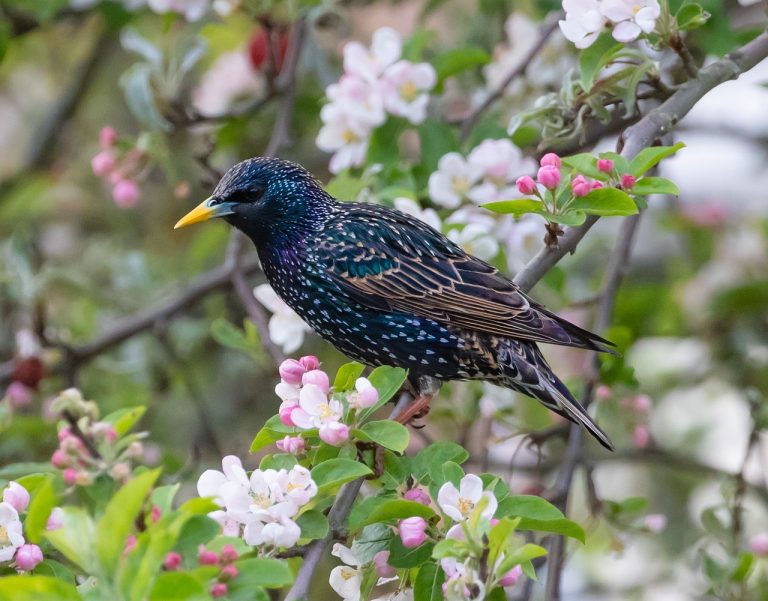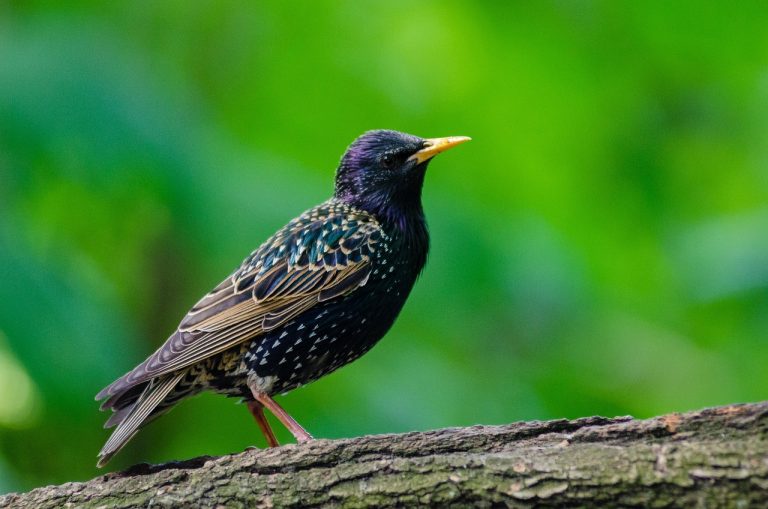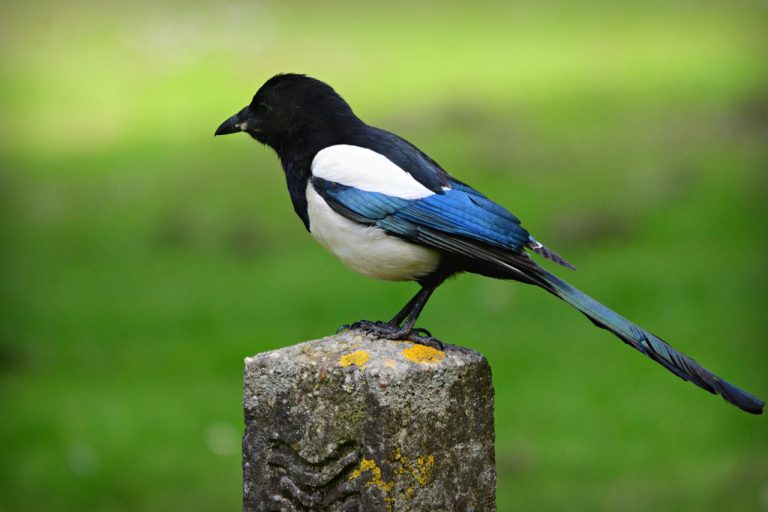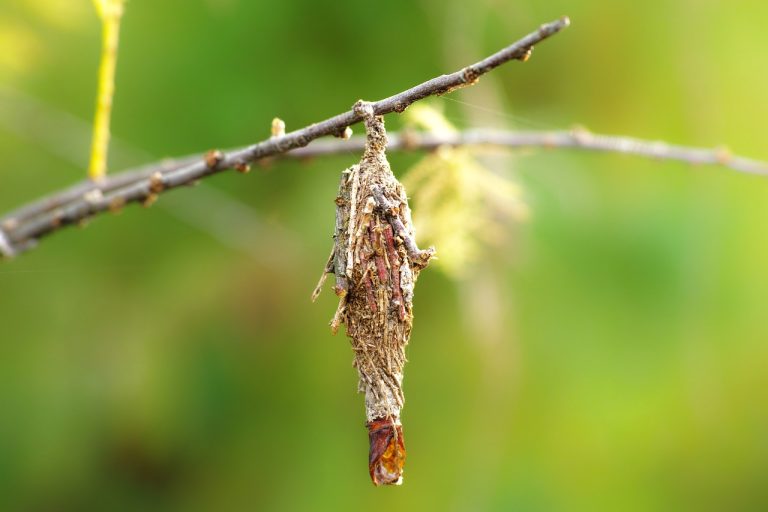CAN DUCKS EAT CAT FOOD (4 Important Guidelines)
“In the realm of dietary curiosities, where feathers meet kibble, a rather unusual question arises: Can ducks partake in the feline feast that is cat food? The world of animal nutrition has often been a puzzling maze, filled with unexpected twists and turns, and this particular inquiry sends us waddling down a path less traveled.
As we embark on this culinary expedition, we’ll dive into the intriguing world of ducks and their potential appetite for the crunchy, meaty goodness of cat cuisine, exploring the boundaries of avian taste buds and feline fare.So, let’s quench our curiosity and embark on this feathered odyssey into the world of ducks and cat food.”
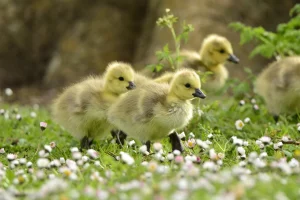
CAN DUCKS EAT CAT FOOD
Ducks should not consume cat food. While cats thrive on a diet rich in protein, ducks have different dietary needs. Feeding ducks cat food can lead to nutritional imbalances and health issues for these waterfowl. It’s crucial to offer ducks a diet that primarily consists of grains, seeds, vegetables, and aquatic plants.
Providing them with appropriate nutrition ensures their well-being and helps maintain the delicate balance of their ecosystem. So, avoid the temptation to offer cat food to ducks and instead focus on their natural dietary requirements to keep them healthy and thriving.
DUCK DIETS AND NATURAL PREFERENCES:
Ducks indeed have diverse diets, and their preferences can vary based on their species, habitat, and availability of food sources. Here are some key aspects of duck diets and natural preferences:
AQUATIC PLANTS:
Many duck species are known for their preference for aquatic plants like duckweed, water lilies, and various submerged and emergent vegetation. They are adapted to reach these plants underwater with their long necks and filter-feeding bills.
INSECTS AND SMALL AQUATIC ORGANISMS:
Ducks are opportunistic feeders and will readily consume insects, crustaceans, and small aquatic organisms when available. They may dabble at the water’s surface or tip their bodies to reach these prey items.
GRAINS AND SEEDS:
Ducks also consume a variety of grains and seeds, both in natural and human-influenced environments. This includes seeds from grasses, sedges, and agricultural crops like wheat, rice, and corn.Ducks can also eat celery as it is a good source of vitamins.
GREENS AND VEGETATION:
Ducks incorporate greens and terrestrial vegetation into their diet. These can include various leaves, grasses, and other plant material. Mallards, for example, are known to graze on grasses and grains.
SEASONAL VARIATION:
Duck diets can vary seasonally. During the breeding season, ducks may consume more animal matter to meet the higher energy demands of nesting and raising young. In contrast, during the non-breeding season, they might focus more on plant material.
MIGRATION AND GEOGRAPHIC VARIABILITY:
The diet of ducks can also change based on their location and migration patterns. For example, some species of ducks migrate to different regions in search of specific food sources.
HUMAN INFLUENCE:
In areas where ducks interact with humans, they may also consume human-provided food, such as bread, which is not a suitable dietary staple for them. Feeding ducks in urban parks with processed foods can be harmful to their health.
SPECIALIZED ADAPTATIONS:
Ducks have specialized bills and feeding behaviors that help them access different types of food. For example, dabbling ducks feed on the surface or tip forward to reach underwater vegetation, while diving ducks can submerge themselves to access aquatic plants and prey.
CAT FOOD COMPOSITION:
Cat food is tailored to meet the dietary requirements of carnivorous felines, offering high protein levels from animal sources and essential nutrients like taurine. Feeding ducks cat food regularly is not advisable due to these distinct nutritional needs.
POSSIBLE RISKS
Feeding ducks cat food can indeed pose several potential risks to their health and well-being:
NUTRITIONAL IMBALANCE:
Cat food is specifically formulated for the dietary needs of cats, which are obligate carnivores. Ducks, on the other hand, are omnivores and have different nutritional requirements. Feeding them cat food can lead to imbalances in their diet, as it lacks essential nutrients that ducks need, such as fiber, vitamins, and minerals.
HIGH PROTEIN CONTENT:
Cat food typically contains a much higher protein content than what ducks require. Excessive protein intake can strain a duck’s liver and kidneys, potentially leading to organ damage or dysfunction over time. This can have serious health consequences for the ducks.
LACK OF FIBER:
Ducks require fiber in their diet to maintain proper digestive health. Cat food lacks the fiber content necessary for the digestive processes of ducks, which can lead to digestive problems like constipation or diarrhea.
DISRUPTION OF NATURAL FORAGING BEHAVIOR:
Feeding ducks cat food can disrupt their natural foraging behaviors. Ducks typically feed on a variety of aquatic plants, insects, and small invertebrates found in their natural habitat. Providing them with cat food may discourage them from foraging for these natural foods, which are essential for their overall health and well-being.
DEPENDENCY ON HANDOUTS:
When ducks become accustomed to receiving cat food from humans, they may become dependent on these handouts. This can lead to a loss of their natural instincts and abilities to find food on their own, making them less self-sufficient and potentially less able to thrive in their natural environment.
ENVIRONMENTAL IMPACT:
Feeding ducks cat food in natural environments can also have negative environmental consequences. Uneaten cat food can pollute water bodies, disrupt local ecosystems, and attract unwanted wildlife, such as rats and raccoons, which can further impact the ecosystem.
OCCASIONAL TREATS AND MODERATION:
Feeding ducks occasional treats like small amounts of cat food in moderation is generally acceptable, but there are a few important considerations to keep in mind:
NUTRITIONAL BALANCE:
Cat food is formulated to meet the dietary needs of cats, which are different from those of ducks. Ducks primarily require grains, seeds, greens, and aquatic vegetation in their diet. While occasional cat food treats won’t harm them, it should not replace their primary, balanced diet.
PROTEIN:
Cat food is typically high in protein, which ducks do need to some extent, especially during periods of growth, egg production, or molting. However, too much protein can be harmful. Ensure that the cat food treats are low in salt and don’t overdo it, as excess protein can lead to health issues in ducks.
MODERATION:
As mentioned, moderation is key. Occasional treats should be just that—occasional. Overfeeding ducks with cat food or any other treats can disrupt their nutritional balance and lead to obesity or other health problems.
HEALTH CONSIDERATIONS:
Be mindful of the specific health needs of your ducks. If you have ducks with special dietary requirements or health issues, it’s best to consult with a veterinarian or avian specialist for guidance on their diet.
ENVIRONMENTAL IMPACT:
Feeding ducks in public areas like ponds or parks is a common practice, but it’s important to be aware of the potential environmental impact. Feeding ducks too much processed or inappropriate food can disrupt their natural foraging habits and alter the ecosystem in these areas. Always follow local guidelines and recommendations regarding feeding ducks in public spaces.
Here Are Some Frequently Asked Questions (FAQ) About “Can Ducks Eat Cat Food”
Can ducks eat cat food?
Ducks are omnivores, and they can eat a variety of foods, including cat food. However, it should not be a primary part of their diet.
Is cat food safe for ducks?
Cat food is generally safe for ducks in moderation, but it should not replace their natural diet. High-quality duck food or grains are better options.
What types of cat food can ducks eat?
Ducks can consume both dry and wet cat food. Look for cat food with high meat content and avoid brands with excessive fillers.
How should I feed cat food to ducks?
If you decide to feed cat food to ducks, it’s best to soak it in water to make it easier for them to eat. You can also mix it with other duck-friendly foods.
Can ducks eat cat kibble?
Yes, ducks can eat cat kibble, but it’s important to make sure it’s not their primary food source, as it lacks essential nutrients for ducks.
Is there any cat food that ducks should avoid?
Ducks should avoid cat food that contains artificial additives, excessive salt, or flavorings. Stick to basic, high-quality cat food options.
How often can I give cat food to ducks?
Cat food should only be given to ducks occasionally as a treat, not as a regular part of their diet. A few times a week is sufficient.
What are the risks of feeding ducks cat food?
Overfeeding ducks cat food can lead to obesity and health issues. It may also disrupt their natural foraging behavior.
What is a balanced diet for ducks?
A balanced diet for ducks includes grains, seeds, aquatic plants, and small invertebrates. Duck pellets specifically formulated for their nutritional needs are ideal.
Can I feed ducks exclusively on cat food?
No, you should never exclusively feed ducks cat food. It lacks essential nutrients and can harm their health in the long run.
Should I consult a veterinarian before feeding ducks cat food?
It’s advisable to consult a veterinarian or a wildlife expert before introducing any non-natural food to a duck’s diet, including cat food.
Are there any alternatives to cat food for feeding ducks?
Yes, there are many alternatives, including duck pellets, cracked corn, peas, and lettuce. These foods are more suitable for their nutritional needs.
Can feeding ducks cat food attract other wildlife or pests?
Yes, leaving cat food out for ducks may attract other animals like raccoons, which could potentially harm the ducks. Be cautious and clean up after feeding them.
Can ducklings eat cat food?
Ducklings have different nutritional requirements than adult ducks. It’s best to provide them with specialized duckling food to ensure proper growth and development. Cat food is not suitable for ducklings.
Is it okay to feed wild ducks cat food?
It’s generally discouraged to feed wild ducks, as it can disrupt their natural diet and behavior. If you feel the need to feed them, opt for duck-friendly foods in moderation instead of cat food.
CONCLUSION
Ducks are naturally omnivorous and can consume a wide range of foods, including insects, aquatic plants, and grains, cat food should not be a regular part of their diet. While ducks might nibble on cat food occasionally without immediate harm, it lacks the essential nutrients they need for optimal health and could potentially lead to nutritional deficiencies over time.
Therefore, it is best to prioritize a diet that aligns with a duck’s natural foraging habits and nutritional requirements to ensure their well-being and longevity. Always consult with a veterinarian or avian expert for guidance on providing the most suitable diet for ducks in your care.

